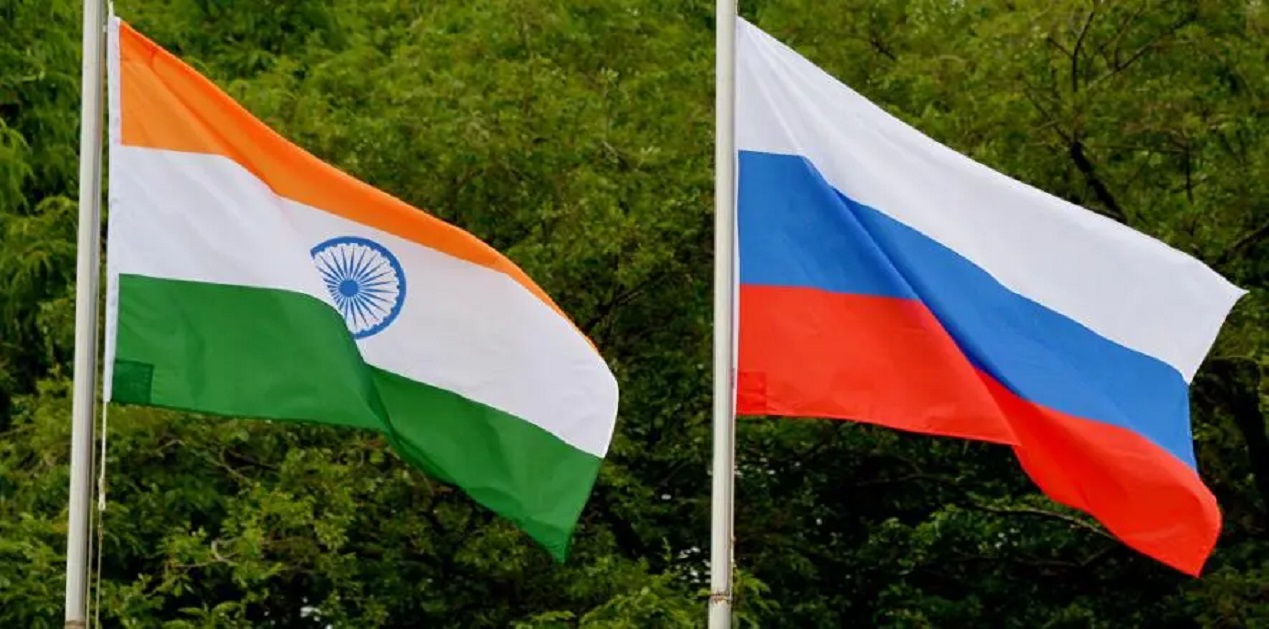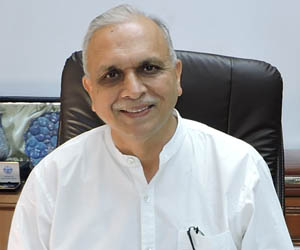Geopolitical Environment
India-Russia relations have stood the test of time for several decades. But they are under considerable pressure now due to the ongoing multi-dimensional global crisis, which has impacted the two countries differently. While India looks forward to its steady rise in global affairs, Russia is locked in a long conflict with NATO. NATO and the West would like to see Russia further weakened politically, economically, and militarily through a prolonged conflict. Russia’s dependence on China has increased at a time when the latter’s assertiveness in the world is causing worries and concerns in the Indo-Pacific and India in particular.
The geo-economics consequences of Covid, climate change, and Russia-Ukraine war have become unbearable for most countries. The global economy is slowing down; inflation is extremely high across the world, global supply chains have been disrupted; and an unprecedented cost of living prices has impacted most countries. The global energy landscape has been transformed fundamentally. The indebtedness of developing countries has increased manifold.
International security is under severe strain. Dire scenarios of a possible global conflict are being painted in the popular media. There is far greater apprehension today about the use of nuclear weapons in a military conflict than ever since the Cuban missile crisis in 1962. The arms control dialogue between the US and Russia has stopped. The Korean peninsula is extremely tense with DPRK regularly firing missiles provocatively in the water surrounding Japan and South Korea in protest against US-South Korea military exercises. The Taiwan Strait was extremely tense following Nancy Pelosi’s visit to Taiwan. Whether China would do a Ukraine in Taiwan keeps the Taiwanese awake at night. The prospects of an agreement on the Iran’s nuclear programme do not look promising. Israel- Hamas tensions have flared up once again.
India’s neighbourhood remains volatile. Sri Lanka is facing an extremely serious economic crisis triggered by unsustainable debt. After the Taliban take over in Aug 2021, the socio-economic situation in Afghanistan has further deteriorated. The Taliban have blocked girls’ education. Terrorist groups, including the Islamic State, are active in Afghanistan. Tehrik-e Taliban Pakistan (TTP) has stepped up its attacks in Pakistan. Pakistan’s economy is in a serious crisis. Political situation in Pakistan is tense. India is watching the situation carefully. Iran is witnessing unprecedented anti-Hijab protests amidst a state crackdown, China’s Zero-Covid policy, the economic crisis it has generated and the resultant violent protests are unprecedented.
Indo-Russian Relations
It is in this growing atmosphere of uncertainty and instability that we need to examine the opportunities and challenges in Indo-Russian relations.
Before the Russia-Ukraine war erupted, India had genuine appreciation of Russia’s security concerns vis-a-vis NATO’s eastward expansion. But, Russia’s decision to cross the boundary into Ukraine and launch a “special military operations” came as a big surprise in India as elsewhere. A series of resolutions were passed at the UN condemning Russia’s violation of the sovereignty of Ukraine in violation of the UN Charter. Yet, India chose not to condemn Russia openly, thereby inviting western criticism. Yet, India stood its ground and took a principled position. While abstaining on the UN resolutions, it also called for the resolution of the conflict through dialogue and diplomacy and adherence to the principles of UN charter. India was not comfortable but it did not criticise Russia openly as doing so was not considered to be in its national interest.
Although India did not criticize Russia openly, it conveyed its worries and concerns to Russian partners. At the Samarkand summit of the Shanghai Cooperation Organisation (SCO), in Sep 2022, Prime Minister Modi conveyed publicly to President Putin that this was not an “era of wars”. The implication was that Russia-Ukraine war must come to an end through dialogue and diplomacy. PM Modi also had telephonic conversation with President Zhelensky of Ukraine. India, which is looking at the prospects of significant enhancement of its global role, is concerned that its rise might be interrupted due to global uncertainties. In his speech at the Bali Summit of G-20, Prime Minister Modi spoke on the emerging new world order and reiterated his position. Although not stated publicly, it would seem that India would be prepared to play a role in facilitating the end of the war.
Economic
Paradoxically, the Russia-Ukraine war has given a fillip to Indo-Russian relations. Bilateral trade has increased by 170 percent in one year mostly due to increase in Indian uptake of Russian oil at discounted price. Russia has emerged as India’s largest supplier of oil (Oct 2022). The International North-South Transport Corridor (INSTC), which connects India and Russia through Iran, has been revived. The two countries are discussing alternative payment arrangements circumventing the dollar. India’s independent position on the Russia-Ukraine conflict has been appreciated by Russia. This has created new opportunities for Indo-Russian relations in the economic field. Both countries need to accelerate the existing nuclear energy cooperation.
Military
Although India has sought to diversify its military procurement in the last few years, India-Russia military-technical ties remain strong. There are understandable concerns in India about the continuity and reliability of supplies of Russian hardware to India. However, India remains open to military-technical collaborations in the future. India is procuring S-400 missile defence system from Russia despite US reservations. India and Russia have a successful cruise missiles joint venture BrahMos. India is exporting these missiles to the Philippines. They are also collaborating in a new project of jointly producing the AK-202 rifles under “Make in India” programme. More such possibilities can be explored. India has made significant progress in biotechnology, pharma, medical devices, drones technologies, Artificial Intelligence (AI) and fintech. A large number of technology Start Ups have come up. Space sector has been opened up for private sector participation. India has an ambitious plan of expanding its fleet of nuclear power reactors and even exporting them. Russia and India can collaborate in these emerging sectors.
Yet, the bilateral relationship cannot be taken for granted. There are challenges. Both sides will need to work on them. Given high level of mutual understanding between the two countries, India and Russia need to take stock of the current relationship and explore the possibility of proofing their ties from the adverse impact of prevailing global uncertainty. Despite strong global head winds, India and Russia will remain important partners in an uncertain, multipolar world.
Russia should appreciate that India has stakes in peace and stability in Eurasia as well as the Indo-Pacific. India’s membership of the Quad is a response to the growing Chinese assertiveness in the Pacific and Indian Ocean. India has concerns about China’s role. Similarly, Russia has concerns about India’s growing strategic partnership with the US. India’s participation in the Quad does not contradict Russia’s security interests. In fact India stands for an open rule-based Indo-Pacific. Beyond the Quad, India is working to activate the Chennai Vladivostok Maritime Corridor, which will pass through the Indian and Pacific oceansto Russia’s Far East.
The two countries have different perspectives on China Indo-Pacific, US, Pakistan etc. This is understandable. Russia and India should develop a dialogue to understand the dynamics of the two regions. Both sides need to take into account the sensitivity of each other and develop a mutually beneficial relationship. This is a challenge but not an insurmountable one.
(The paper is the author’s individual scholastic articulation. The author certifies that the article/paper is original in content, unpublished and it has not been submitted for publication/web upload elsewhere, and that the facts and figures quoted are duly referenced, as needed, and are believed to be correct). (The paper does not necessarily represent the organisational stance... More >>
Image Source: https://st.adda247.com/https://wpassets.adda247.com/wp-content/uploads/multisite/sites/5/2022/09/19115337/india-russia.jpg











Post new comment